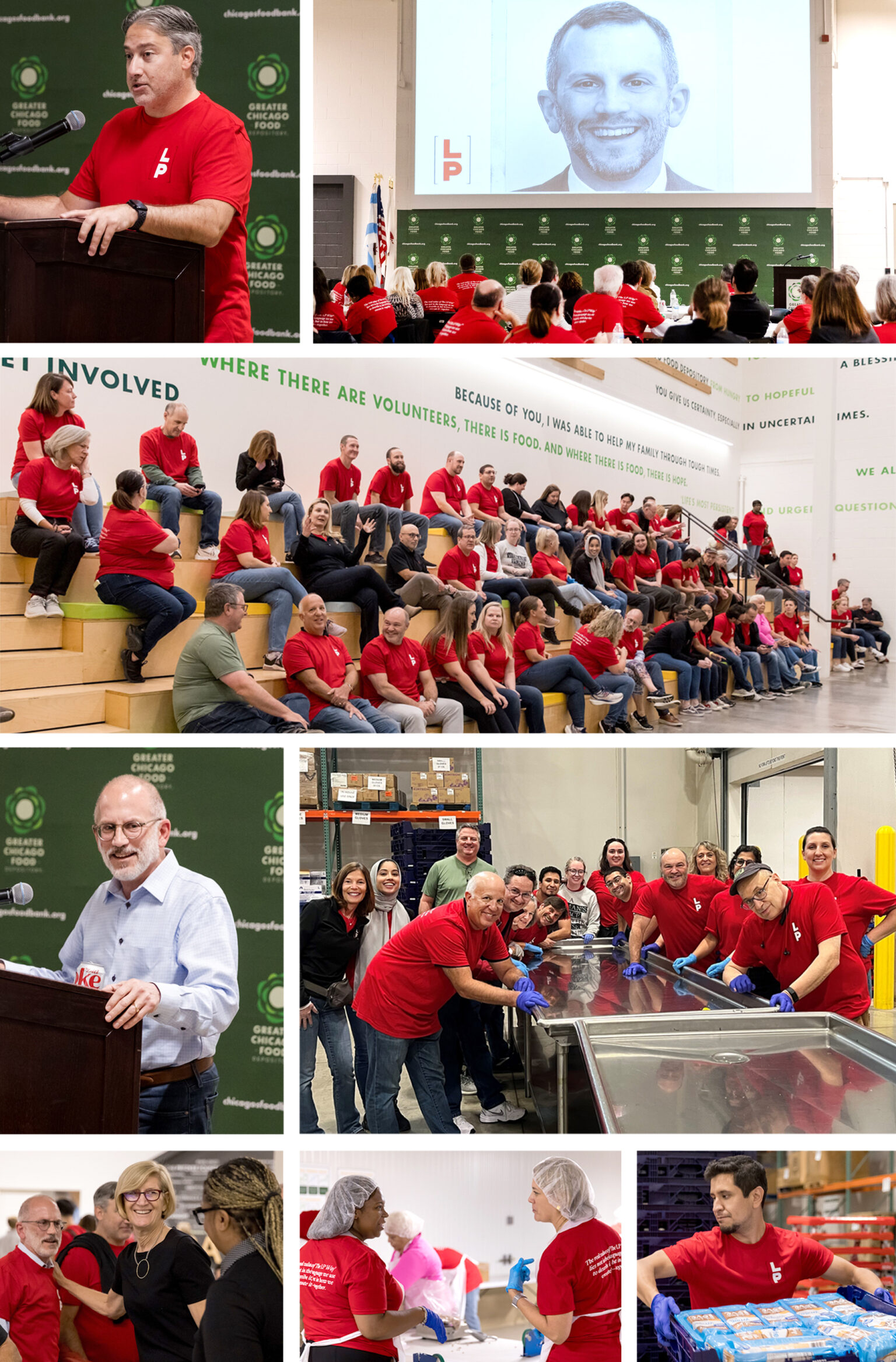Effective July 1, 2024, employers will need to comply with new paid leave requirements that apply to all Chicago employees (including those who work from home from Chicago). The Chicago City Council passed the Paid Leave and Paid Sick and Safe Leave Ordinance (“Paid Leave Ordinance”) on November 9, 2023. Although the ordinance’s new requirements originally were slated to go into effect on January 1, 2024, an amending ordinance delayed the effective date for most obligations to July 1, 2024.
What changes take effect on July 1, 2024?
The Paid Leave Ordinance implements two separate requirements: (1) that employees earn up to 40 hours of paid leave for any purpose (“PTO”), and (2) that employees earn up to 40 hours of paid sick leave (“Paid Sick Leave”) per 12-month period. Under the ordinance, employees will accrue both PTO and Paid Sick Leave at a rate of at least one hour for every 35 hours worked. The Paid Leave Ordinance also requires that employers allow employees to carry over up to 16 hours of PTO and up to 80 hours of Paid Sick Leave each year, though employers may avoid the requirement to carry over PTO by “frontloading” the 40 hours of PTO each year (as described below).
Who is covered by the new rule?
The Paid Leave Ordinance applies to any employer with at least one employee, and to any employee who works at least 80 hours in Chicago during a 120-day period. Once an employee meets that threshold, they are deemed a “covered employee” for the duration of their employment with that employer.
Employers subject to a collective bargaining agreement with more generous paid time off should continue to comply with the collective bargaining agreement’s provisions.
What are the notice requirements?
Chicago employers must (1) post a notice of the new requirements, (2) adopt a written policy explaining PTO and Paid Sick Leave rights and responsibilities and share the policy with employees when they are hired, and (3) provide employees with PTO and Paid Sick Leave accrual and use information each pay period. Additionally, employers must provide a copy of their employment policies to workers with regular work duties in Chicago in the worker’s primary language. Finally, employers must give employees five calendar days’ notice of any changes to the PTO or Sick Leave policies and 14 days’ notice of any changes to other employment policies. Any required notices can be provided electronically with covered employees’ paychecks.
What are the requirements for employers with unlimited PTO policies?
If a Chicago employer has “unlimited” or “flexible” paid time off, the Paid Leave Ordinance requires that, at termination, they pay out 40 hours of PTO less any PTO the employee has used over the course of the previous 12 months. Employers with unlimited or flexible paid leave policies should make sure to track the use of paid time off by employees accurately to avoid paying out the full 40 hours. Employers who use an unlimited PTO policy should still give their employees notice of the law’s requirements and indicate “unlimited” on covered employees’ PTO statements.
How does the Paid Leave Ordinance impact employers with accrual-based PTO systems?
If an employer uses an accrual system, its employees must accrue both PTO and Paid Sick Leave at a rate of at least one hour for each 35 hours worked. Employers may cap accruals and use at 40 hours for each kind of leave in a 12-month period. Employers with an accrual system must allow employees to carry over up to 16 hours of PTO and up to 80 hours of Paid Sick Leave each year. Employers that use an accrual system must adopt a policy that explains the accrual rate.
What about employers with frontloading PTO systems?
Employers that frontload PTO and Paid Sick Leave must provide at least 40 hours of PTO and 40 hours of Paid Sick Leave at the beginning of each 12-month period. While employers who frontload don’t need to allow carryover of PTO into the new year, they still must carry over up to 80 hours of unused Paid Sick Leave (even though employees don’t have a right to use more than 40 hours in a year). Employers that frontload PTO and Paid Sick Leave should be aware that employees who quit early in the year will still be entitled to a payout for the full year’s allotment of PTO (or, if it is consolidated into a single bank, of the full bank).
How does the Paid Leave Ordinance impact employers outside Chicago?
The ordinance applies to Chicago employers and to employees of non-Chicago employers who physically work in Chicago for at least 80 hours in a 120-day period, including those working remotely.
Illinois employers outside of Chicago must comply with the Illinois Paid Leave for All Workers Act, which took effect on January 1, 2024. The Illinois Paid Leave for All Workers Act does not apply in Chicago or any other jurisdiction with an existing paid time off requirement.
What should employers do to get ready for the new requirements?
Employers should:
- Determine whether they will frontload or accrue for PTO and Paid Sick Leave.
- Review existing policies to confirm compliance with the new ordinance and clearly explain how PTO and Paid Sick Leave will be handled.
- Ensure payroll systems track and document time off availability and usage properly.
- Confirm how notice will be provided each pay period.
- Determine whether any employees who aren’t otherwise viewed as “Chicago employees” are physically present in the City of Chicago for work at least 80 hours in a 120-day period. If so, make sure they’re provided with the required PTO and Paid Sick Leave.
- Update template separation letters to reflect new payment upon termination requirements.
- Ensure your human resources team knows when and how PTO and Paid Sick Leave needs to be paid out.
LP’s Employment & Executive Compensation Group will host a webinar on the Chicago Paid Leave Ordinance on Thursday, May 2, 2024, from 11:00 am – 12:00 pm CDT. To register, click here.
On September 27, LP team members volunteered at the Greater Chicago Food Depository as part of our “LP Day of Service.” Together we repacked a total of 8,586 pounds of food. Put into perspective, the Food Depository will be able to provide 7,155 meals as a result of our efforts. We are proud to support our community partner in their mission to end hunger and inspire hope.
We also took this time to honor Rob Romanoff, who has been instrumental in the growth and success of LP for the past 19 years and counting. Whether it was his 10 years as managing partner or 15 years as a member of the Executive Committee, Rob has always been a thoughtful and humble leader. You can view his video tribute here.

LP’s Employment & Executive Compensation Group recently hosted its annual complimentary webinar, during which the group reviewed developments over the past year and discussed tips to keep your workplace practices moving forward.
Topics included, among others:
- New job posting and pay disclosure requirements
- Illinois’ new PTO requirements and other PTO/leave-related developments
- Increased scrutiny of non-competes and non-solicits
- Employment law implications of data privacy and AI
- Required changes to standard policies and documents to comply with new NLRB standards
- Changing independent contractor classification standards
- Supreme Court’s religious accommodation and affirmative action decisions
- State law developments that will impact your business, including new non-discrimination, expense reimbursement, and marijuana laws

You can also view clips on the following topics:
LP Partner Laura Friedel and Christine Binotti of Motorola Solutions will share their non-traditional approach to supporting the HR and M&A deal teams and how it’s benefited their teams during a lunch program sponsored by the Association of Corporate Counsel (ACC) on September 27, 2023, from 11:30-1:00 p.m. CST. LP will be hosting the event in our Chicago office.
For more information and to register click here.
Partner David Solomon will be part of a panel discussion at the National Center for Employee Ownership (NCEO) Conference on April 26, 2023 from 4:00-5:00pm. David will be joined by three other ESOP experts to discuss ESOP board of director responsibilities in the face of economic headwinds.
Valued partners get a discounted registration.
Use code NCEO2023PARTNER for $50 off current registration prices.
Originally published on October 19, 2022 and republished on January 25, 2023.
Competing for talent and responding to new compliance laws are among the top concerns for employers. LP Partner Laura Friedel shares some insights on these issues and others as part of Crain’s Roundtable on Labor and Employment Law. Friedel and two other employment, labor and HR executives share strategies for employers on a range of timely topics, including:
- Top things Illinois employers should be focusing on from a compliance perspective
- How employers can prepare for Illinois’ new pay transparency requirements in the Equal Pay Act
- Ways employers can strengthen their workforce and retain top talent
- Employment trends regarding paid time off
- Considerations when deciding whether to have a remote, hybrid or in-person workforce
You can read the full responses on Crain’s Roundtable on Labor and Employment Law here.
In case you missed our Employment & Executive Compensation webinar, you can watch at the following links:
Thank you to all who joined us at LP’s annual Employment & Executive Compensation groups complimentary webinar on Thursday, September 22, 2022. We reviewed developments over the past year and discussed tips to keep your workplace practices moving forward.
Topics included:
- Chicago’s new sexual harassment requirements
- New state efforts to regulate equal pay through reporting, information sharing, and limitations on requests for salary history
- Increased scrutiny of restrictive covenant agreements, including new state restrictions
- Trends and updates in executive compensation
- Update on Covid-19 in the workplace, including remote work, accommodations, and return-to-work trends
and more….
Watch the Recording:
The Chicago Dealmakers Conference, which connects thousands of Chicago-area dealmakers ranging from middle-market CEOs to top investors and lenders to leading M&A advisers, is fast approaching on October 12th. This year’s conference is focused on “The M&A Boom: How Long Can It Last?,” with sessions ranging from raising capital to buying and selling companies to alternative asset investing.
At the conference, Partner Kevin Slaughter will present with a panel of M&A leaders to examine strategic acquisitions, including a discussion of corporate acquirers versus private equity buyers.
Register for the conference online by clicking here.
You can visit this link to learn more about the event, view the agenda, and see the 2022 panelists.
The upcoming Private Director’s Association Conference will be held on September 7th in Chicago, Illinois. This year’s conference is focused on “ESOP Board of Director Responsibilities in the Face of Economic Headwinds,” and Partner David Solomon will be part of a panel discussion providing valuable information on insight into the current economic conditions which are affecting the fundamental drivers of valuation, board of director responsibilities, and the financing markets.
LP Partner in the firm’s Trust & Estates Group, Adam Garber, will present at the Chicago Estate Planning Council Workshop on Post-Death Tax Liability on Thursday, April 28, 2022 from 12-1:30 PM CT.
This workshop will give a broad overview of personal income tax, fiduciary income tax, and estate and GST transfer tax and how each of these taxes are related from this session.
Register online here.